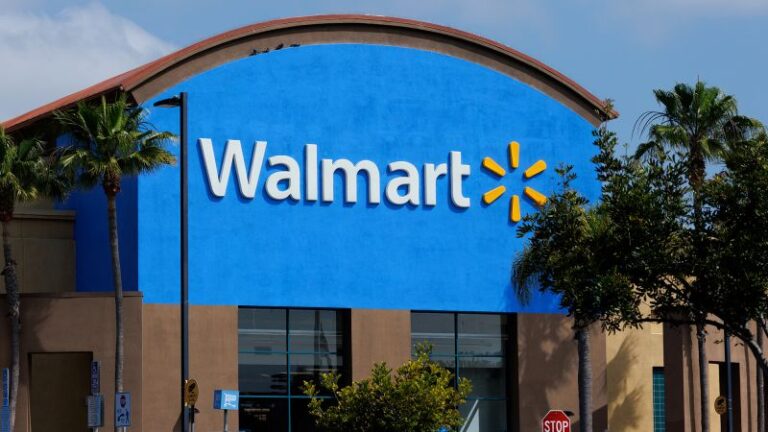New York
—
Walmart and Target are heading in opposite directions.
Walmart said Thursday that sales at US stores open for at least a year jumped 4.8%, and it gained market share across income groups, led by growth with upper-income households. The company also raised its sales outlook for the year.
The retail behemoth once again on Thursday showed how it uses its size to dominate the industry. Its economies of scale help keep prices as low as possible, even as Trump’s tariffs raise costs. Walmart also relies on its strength in groceries and necessities to win over shoppers looking for discounts. More than half of Walmart’s sales come from groceries.
Meanwhile, Target is in a funk and its CEO is stepping down.
Target on Wednesday reported sales fell for the third consecutive quarter. Shares tumbled 6%.
Target CEO Brian Cornell is stepping down after 11 years at the retailer, as the company faces slumping sales and backlash to its retreat on DEI. He will be replaced early next year by Michael Fiddelke, Target’s current chief operating officer. Some investors and analysts criticized the move, arguing Target should have hired an outside voice to lead the company.
The company’s business is falling behind Walmart because it stocks more non-essential goods such as home decor than Walmart. Many shoppers, strained by inflation over the past several years, are buying fewer discretionary products and focusing on essentials.
Target also imports about half of its merchandise, compared to roughly 33% at Walmart, so it needs to raise prices at almost double the rate of Walmart to mitigate the tariff impact, Bank of America analyst Robert Ohmes said in a report this week.
This is a breaking news story and will be updated.


